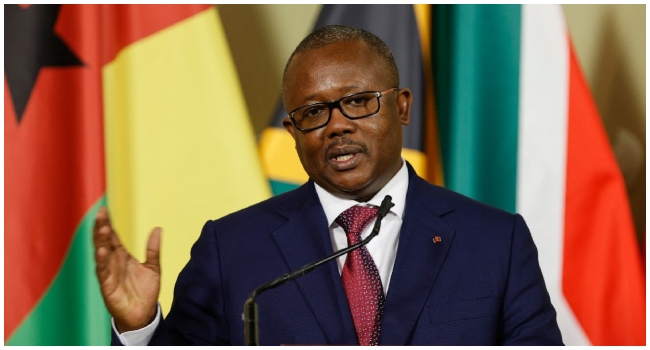The president of Guinea-Bissau on Monday dissolved parliament ahead of fresh elections saying an “attempted coup” had plunged the West African nation into a new crisis.
President Umaro Sissoco Embalo issued a decree closing down the opposition-dominated parliament and announced that legislative elections would be “set at the opportune moment, in line with the constitution”.
Violence had erupted between members of the National Guard and special forces of the presidential guard on Thursday night in the capital Bissau, leaving two people dead.
Embalo, who was in Dubai attending the COP28 climate conference, arrived back in Bissau on Saturday and announced that an “attempted coup d’etat” had prevented him from returning earlier.
On Monday, he said there had been “complicity” between the National Guard and “certain political interests within the State apparatus.
That meant “the normal functioning of the institutions of the Republic has become impossible”.
“These facts confirm the existence of a grave political crisis,” he added.
Since gaining independence from Portugal in 1974, the country has seen a series of coups and coup attempts.
Elected to a five-year term in December 2019, Embalo survived a bid to overthrow him in February 2022.
Members of the National Guard had Thursday evening stormed a police station to extract Finance Minister Souleiman Seidi and Treasury Secretary Antonio Monteiro, who were being held for questioning, according to army and intelligence officers.
The guardsmen then took shelter at a military camp in the capital where they held out until Friday.
Calm had returned by noon Friday following an announcement that the army had captured National Guard commander Colonel Victor Tchongo.
The skirmishes are considered the latest flare-up in the deep political divide between the opposition-led government and the presidency.
The National Guard is under the control of the interior ministry, which, like most ministries in the country, is dominated by the PAIGC party whose coalition won the June 2023 elections.
The prosecutor’s office, which ordered the questioning of the two government officials, is controlled by the presidency.
– Corruption against state –
The two officials, who were answering questions about the withdrawal of $10 million from state accounts, were detained again after the army removed them from National Guard protection.
In Monday’s decree, the president condemned “the passivity of the government”, adding that the National Guard had sought to block investigations into the two high officials.
Embalo said parliament, which had debated the multi-million dollar withdrawal affair, “preferred to defend members of the executive suspected of corruption” against the state, rather than “fight to apply the law rigorously … and to exercise its role as a check on government actions.








